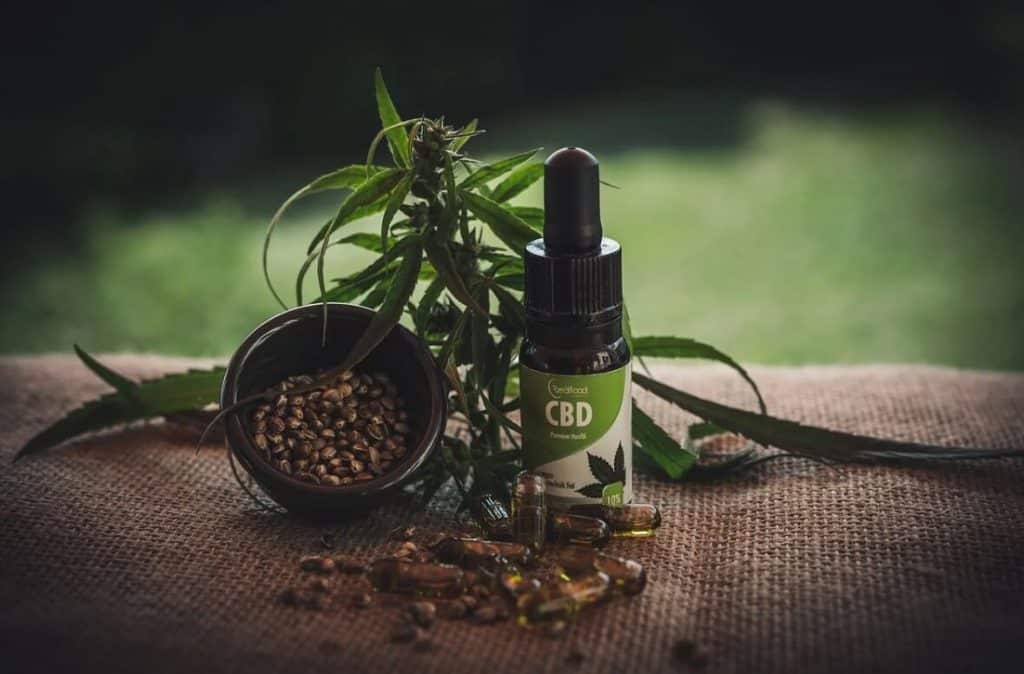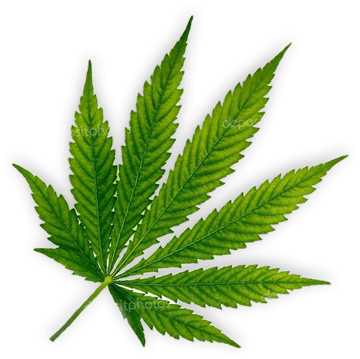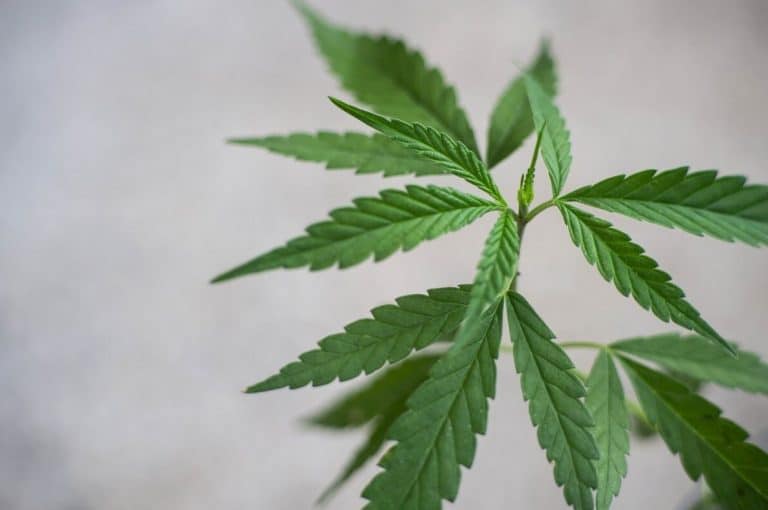Even though the two compounds often go hand in hand, there are still some dissimilarities between them. These CBD versus THC differences might seem to be rather complicated to grasp. But everything is much easier, in reality, so keep reading to understand the basic distinctions before making a premature verdict in this “CBD vs THC for pain” battle.

Cannabidiol is a non-psychoactive substance found in hemp. It is proven to be a potent medication that can help regain productivity and cope with stress. The results of preclinical research [2] have shown CBD might be also efficient in reducing anxiety behaviors.
When using cannabidiol, you become more concentrated, your cognitive abilities improve, and you do not become sluggish, as it is possible with the consumption of cannabis with high THC concentration. Apart from that, CBD found in cannabis is commonly used as a painkiller.
In the human brain, cannabidiol regulates the process of synaptic connections, during which signals are transmitted from one neuron to another. As a result, the connections between these brain cells are getting stronger, leading to a significant increase in productivity levels and improved emotional and psychological state.
If CBD is a kind of an “innocent” substance, then THC (tetrahydrocannabinol) is its diametrical opposition if taken in isolation. Here’s what it means.
THC is widely known solely for its psychoactive composition and notorious status in the CBD market. But, the side effects this compound brings only take place when people consume overly high doses of THC alone.
Notably, everyone’s reaction to THC is different. For example, a small amount of THC for one patient will not make them feel anything, but another patient may have the same amount and elicit a visible psychoactive response.
Against all odds, tetrahydrocannabinol can be useful for alleviating pain, buffering stress, regulating appetite and treating insomnia. How’s that? According to scientific studies, THC does not work alone – it has an army of chemicals that work together to achieve the desired results.
According to the review of studies published in British Journal of Pharmacology, the synergism of compounds found throughout the plant provides an improved therapeutic effect. In other words, taking CBD and THC together is more effective than taking them alone.
If the ratio of CBD to THC is approximately the same, you will get light euphoric and beneficial effects at the same time. You will not feel such negative consequences as paranoia, dry mucous membranes, redness of the eyeballs, hunger, drowsiness, and memory problems.
Now that you know what is THC and CBD and the qualities they have, it’s best, to sum up the main differences for you not to get confused.
If we take CBD oil vs THC, we can see that according to scientists, CBD is more useful in the treatment of motor disorders, such as Parkinson’s disease. When interacting with serotonin receptors, CBD can be used to treat depression, anxiety and psychotic stages of bipolar disorder and schizophrenia. Some researches show that it can a useful addition to meditating.
CBD is an active phytocannabinoid of the hemp plant which is deprived of psychoactive elements, therefore you will not be able to get high from it.
In the case of CBD vs THC for sleep, THC helps best for combating insomnia. Also, it relieves pain, controls anxiety, and stimulates appetite if taken in optimal doses.
THC is the principal psychoactive constituent of the cannabis plant. If taken abnormally, it can lead to euphoria, dizziness, and in some cases, anxiety. Find out is CBD oil good for anxiety in our blog. But don’t forget to know the right CBD oil dosage for sleep and insomnia.




CBD Dosage Calculator

As for 2019, the legality status of THC oil vs CBD oil has become clearer in comparison to previous years. According to the 2018 Farm Bill, CBD products, as well as CBD skincare products, can be taken medically and recreationally in particular states as long as they are produced from the right plant. What does it mean? This implies that CBD cannot be derived from the marijuana plant. Instead, the only hemp can be used for the production of CBD goods.
The difference between the two has to do with THC concentration. If in marijuana it exceeds 10 percent, in hemp – the maximum amount of this intoxicating element is 0.3 percent, which is why only this plant can be used.
Another condition that defines the status of CBD and THC legitimacy is obedience to manufacturing processes that are regulated by the government.
Finally, the hemp must be grown only by a professional and licensed farmer.
If you take a look at any CBD vs THC chart, you’ll notice that both components can be used in tandem to help people treat a variety of physical conditions. More so, cannabidiol and tetrahydrocannabinol show similar effects for lessening the impact of medical disorders. But, considering that the two compounds affect slightly different areas, their compositions bring different results.
People most often use CBD to treat the following conditions:
THC has potential uses in treating some of the following:
People may use either to help treat:
As we’ve mentioned above, CBD is a compound which, despite its powerful impact on the human body, normally doesn’t lead to any side effects. A 2017 study [5] confirmed its favorable safety profile in humans. The most common side effects that could rarely occur are tiredness, diarrhea, and changes in appetite.
As for THC, it might cause some insignificant adverse conditions, including:
Apart from being a helpful cure for different health issues, CBD and THC are cannabinoids that can be easily displayed on drug tests. And of course, taking into account the fact that particularly THC is in charge of evoking some psychotropic reactions in the human body, drug tests are designed to “hunt” for this cannabidiol in the first place.
CBD and THC are cannabidiols which have different medical properties. Both substances are considered relatively safe for humans and can be a helpful solution for the effective treatment of versatile health problems. They can have different side effects, accumulate in the body, and can be detected using a simple drug test.
[1] Natalya M. Kogan, Raphael Mechoulam, (2007). Cannabinoids in health and disease.
[2] Esther M. Blessing, Maria M. Steenkamp, Jorge Manzanares, and Charles R. Marmar (2015). Cannabidiol as a Potential Treatment for Anxiety Disorders.
[3] Rabia Khan, Sadiq Naveed, Nadeem Mian, Ania Fida, Muhammad Abdur Raafey, Kapil Kiran Aedma (2020). The therapeutic role of Cannabidiol in mental health: a systematic review.
[4] Scott Shannon, Nicole Lewis, Heather Lee, Shannon Hughes (2019). Cannabidiol in Anxiety and Sleep: A Large Case Series.
[5] Kerstin Iffland, Franjo Grotenhermen (2017). An Update on Safety and Side Effects of Cannabidiol: A Review of Clinical Data and Relevant Animal Studies.

Jamie Taylor
Jamie has more than ten years of experience as a physician assistant. He has always been interested in the healing potential of cannabidiol, especially in its pain relief properties. Jamie considers cannabidiol as a powerful remedy with minimal side effects. He knows how to help users make rational buying decisions based on the unbiased and accurate reviews of CBD products and brands.